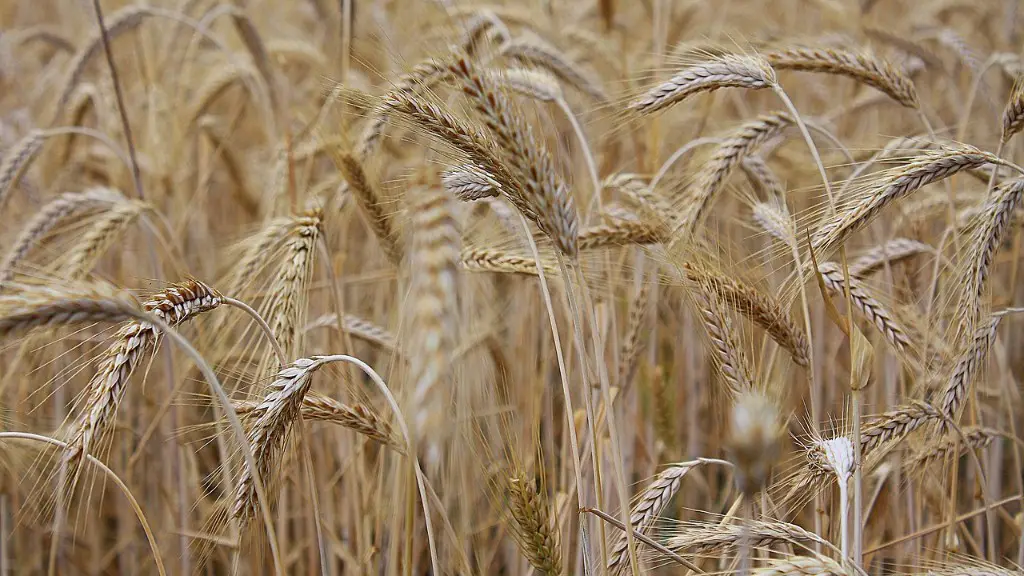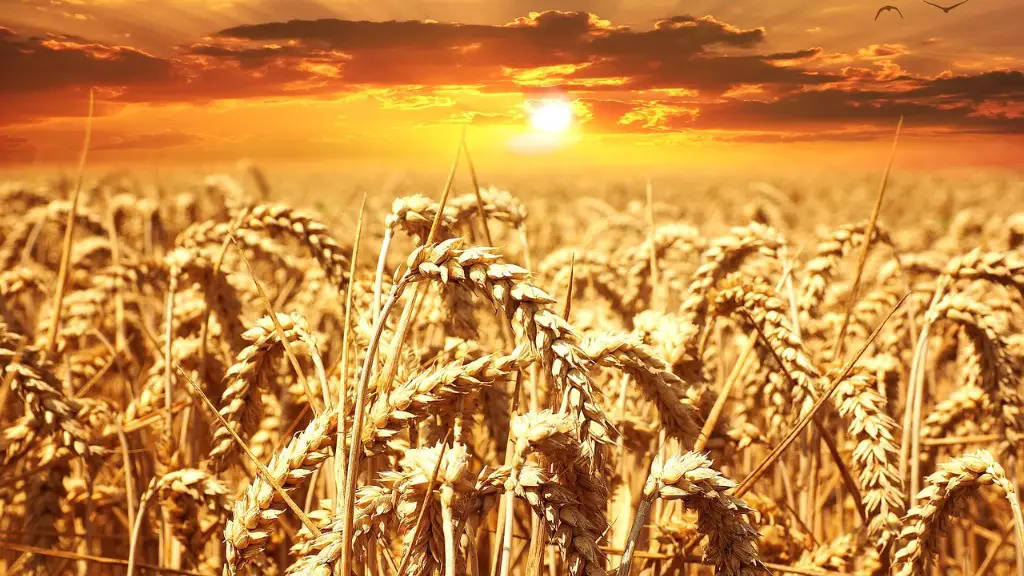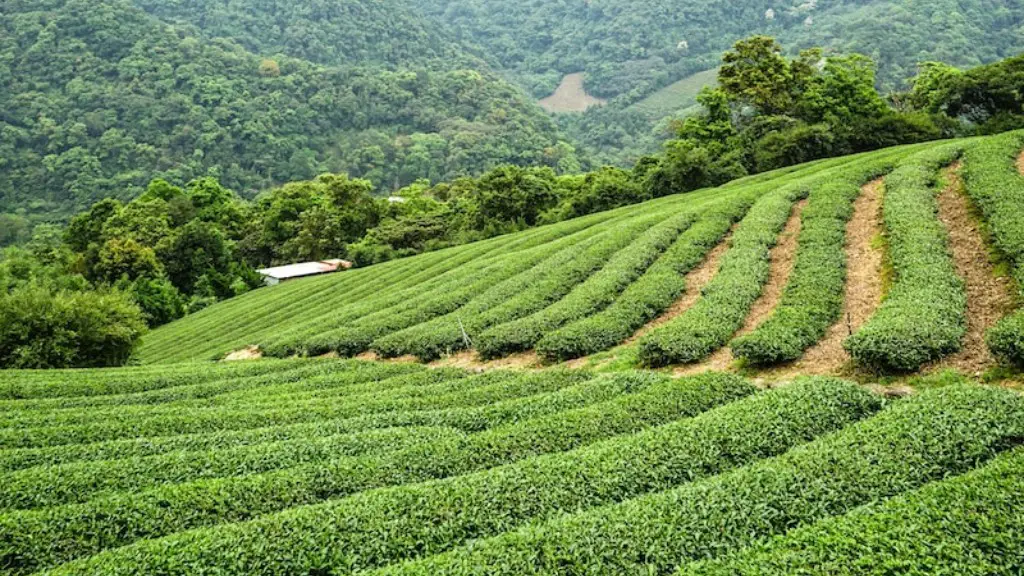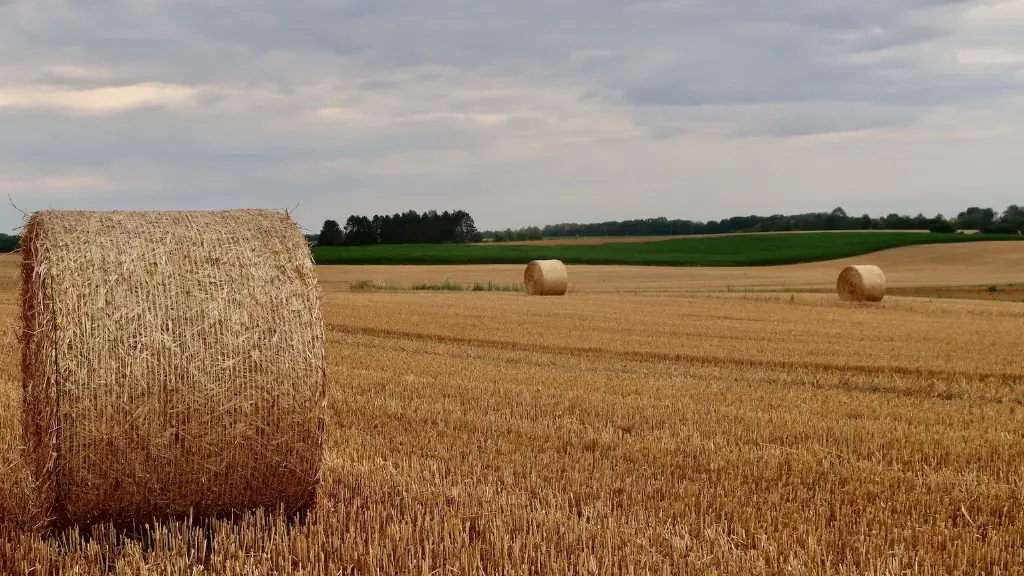Agriculture plays a critical role in most cultures, and in turn, culture has the potential to significantly impact various aspects of agricultural production. The influence of culture on agriculture can be found in topics ranging from the structure of the agricultural system and the type of land use to the social, political and economic organization of the agricultural sector. This essay will explore the ways in which culture influences agriculture and its sustainability.
To begin with, the ways in which crops are planted and crops that are grown vary significantly across regional cultures. Agricultural practices and land use are based largely on cultural tradition, meaning certain areas may consistently plant the same crops while others may continually rotate crops to ensure the healthiness of the land. Planting crops in a certain way is often rooted in deeply held beliefs and communal values, meaning when culture shifts or evolves, agricultural practices are likely to change too.
In addition, culture also influences the decision-making process surrounding the proper management of agricultural lands. Farmers, for example, may make decisions about how to harvest fields or grazing pastures based on traditional cultural practices, meaning these decisions may be heavily influenced by custom and belief rather than research or scientific studies. This could put added pressure on the land if it is not adequately managed nor replenished when necessary.
Furthermore, culture can also strongly shape the approach to land ownership, distribution of resources and labor practices. Not surprisingly, agricultural systems which involve communal ownership of land and resources often require different organizations and structures than those which involve single proprietors. For example, higher levels of equality among farmers might be expected when land is distributed on a communal basis, as opposed to an individual effort. This can potentially increase collective production, reduce the need for mechanization and enhance sustainability.
Agriculture also plays an important role in the ritual and spiritual world of culture. Some cultures may include centuries-old ceremonies or celebrations associated with the growing and harvesting of certain crops. This is a product of individual cultures and communities believing in certain gods, deities or ancestors, and imploring them to bless their harvests and safeguard against famine and other calamities.
Finally, the way in which food is produced and consumed is often deeply rooted in the culture of a particular region or population. Whether people eat with their hands or utensils, at the dining table or on the floor, each cultural diet has a significant impact on the type of food grown in a particular region. The quantity of food consumed, along with the nutritional content of certain foods, is also largely determined by cultural practices, which in turn has a direct impact on the Food System.
Societal Factors
Societal factors can have an important effect on agriculture and how it is conducted. Social networks, for instance, play a major role in distributing information and resources amongst farmers. Access to credit, insurance and machines can be a determining factor in agricultural success and the route to sustainable practices.
Economic forces, too, have a role to play in driving agricultural decisions, such as shifts in demand for certain crops, or the presence of subsidies or tax incentives. Economically driven farming practices can, in turn, have significant implications for all aspects of the agricultural sector, including land use and resource management.
Political systems, individual policies, and laws can either constrain or facilitate agriculture, depending on the context. Political instability, for example, can have significant impacts on the agricultural sector, leading to disruptions in production, labor and distribution systems.
More broadly, power dynamics between small- and large-scale producers can have an impact on the development of agricultural policies and infrastructure. Moreover, access to markets and the ability to produce for them is greatly determined by the prevailing power structure and living conditions in rural areas.
Finally, the global trade and economic structure is also important in influencing the structure of agricultural production and consumption. For example, macroeconomic policies, such as tariffs and subsidies, can impact the availability of certain goods and commodities, as well as the profitability of certain agricultural activities.
Technological Advancements
The development of new technologies, such as sensors, robots, artificial intelligence, drones, and other digital technologies, have tremendous potential to influence agricultural production and use. These technologies can shift the cost structure of various agricultural activities and can provide important data points for decision-making, allowing for greater precision farming. They can also provide novel tools for managing resources and measuring sustainability.
The development of artificial intelligence is becoming increasingly important for agriculture, with AI tools helping to improve decision-making through predictive analytics. Automated sensors, for instance, can help farmers adjust irrigation cycles and measure soil moisture, allowing for greater efficiency and saving on natural resources.
Robotics and drones are also being used in various ways throughout the agricultural sector, ranging from planting and harvesting to scouting and mapping. With the availability of these new technologies, farmers have unprecedented access to data and can more accurately monitor their crops and the environment.
Finally, new technologies, such as hydroponics, can help improve crop yields while reducing the need for certain resources that come with traditional farming methods. This shift towards more sustainable farming practices is made possible by a range of new technologies, each of which has the potential to improve agricultural sustainability.
Climate Change
Climate change is having a major impact on the agricultural sector, and is one of the most pressing challenges facing the world today. Extreme weather, droughts, floods, and other phenomena can have significant impacts on crop yields and natural resources. For this reason, the agricultural sector must adapt to the changing climate, developing new systems and approaches for operating in an increasingly unstable environment.
Climate change is also likely to lead to drastic shifts in crop cultivation and how resources are managed. New challenges and opportunities are likely to stem from changing water availability, soil fertility and increased variability in weather conditions. Thus, the agricultural sector needs to be prepared to respond to these shifts in order to ensure greater resilience and future sustainability.
Additionally, climate change will require the agricultural sector to take preventative measures in order to lessen its environmental impact. For example, reducing agricultural emissions, improving soil health, and adopting renewable energy sources are all vital ways in which the sector can help to mitigate climate change.
Finally, the challenge of climate change cannot be understated. Customers and consumers alike are increasingly demanding information about the environmental sustainability of their food, meaning producers must translate their environmental actions into tangible actions that can be measured and communicated.
Environmental Factors
The environment has a significant impact on the agricultural sector and its sustainability. Environmental change, ranging from desertification and drought to flooding and landslides, can make it increasingly difficult to farm in certain areas. This can negatively impact crop yields, leading to higher costs for farmers or a reduction in quality.
The use of chemical fertilizers and pesticides also has a direct impact on the environment, from increased water pollution to biodiversity loss. Moreover, unsustainable methods of production lead to dwindling soil fertility, reducing crop yields and forcing farmers to seek other methods of production.
Access to natural resources, such as water and soil, is also an important factor when considering agricultural sustainability. Generally speaking, water resources are becoming increasingly scarce due to climate change, putting a strain on farmers and agricultural systems. The depletion of soil resources is also a major concern, as soil is a critical component of sustainable farming.
Furthermore, agricultural production is intrinsically related to the health of the land. Properly managed land is one of the cornerstones of successful and sustainable agricultural production. Overgrazing, deforestation and desertification can have severe consequences on the environment, making it increasingly difficult for farmers to grow crops.
Finally, climate change can also have major impacts on agricultural productivity and sustainability. Extreme weather events, including droughts, floods, and heavy rainfall, can cause significant destruction to crops, leading to reduced yields and higher costs for farmers.





